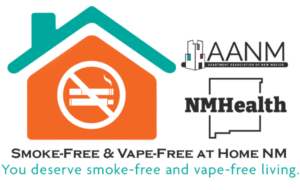Secondhand Smoke and Non-Smokers
Secondhand smoke is harmful to both children and adults, and the only way to fully protect non-smokers is to eliminate smoking in homes, workplaces, and public spaces entirely.
Cigarette smoke and tobacco contain many toxic substances including tar, arsenic, nicotine, and cyanide. Tobacco also contains radioactive materials such as polonium-210 and lead-210.
Measures like separating smokers from non-smokers, opening windows, or using air filters are not enough to prevent exposure to secondhand smoke. This dangerous substance lingers in the air for hours after smoking occurs, putting anyone nearby at risk. Even brief exposure to secondhand smoke can cause harm to your body.
Over time, secondhand smoke has been associated with serious health problems in non-smokers:
- Lung cancer in people who have never smoked.
- Higher risk of heart disease‚ or heart attack.
- Breathing problems like coughing‚ extra phlegm‚ wheezing‚ and shortness of breath.
Secondhand smoke is especially dangerous for children, babies, and women who are pregnant:
- Mothers who breathe secondhand smoke while pregnant are more likely to have babies with low birth weight.
- Babies who breathe secondhand smoke after birth have more lung infections than other babies.
- Secondhand smoke causes kids who already have asthma to have more frequent and severe attacks.
- Babies exposed to secondhand smoke are at higher risk for SIDS. They are also at risk for ear infections, lung infections, and decreased lung function.
- Children exposed to secondhand smoke are more likely to develop bronchitis, pneumonia, and ear infections.
The Risks of Second-Hand Smoke for the Elderly:
Second-hand smoke causes a wide range of health conditions, ordinarily the same ones as active smoking causes. For example, people exposed to second-hand smoke are more likely to develop lung cancer or have heart problems as a result. It also adversely affects lung functioning and can cause adult-onset asthma.
The risks of second-hand smoke are serious for everybody, but especially so for the elderly. Since older people are more likely to have heart problems, and many will have problems with their breathing, adding the risks of second-hand smoke into the mix is particularly dangerous. Additionally, many of the elderly residents may have a history of smoking or exposure to second-hand smoke, so continuing this exposure in old age is particularly risky.
Source: U.S. Department of Health and Human Services. National Cancer Institute at the National Institutes of Health. U.S. Department of Health and Human Services.
A Report of the Surgeon General: Highlights: Overview of Finding Regarding Reproductive Health. Atlanta: U.S. Department of Health and Human Services, Centers for Disease Control and Prevention, National Center for Chronic Disease Prevention and Health Promotion, Office on Smoking and Health, 2010. Accessed: April 24, 2024. https://stacks.cdc.gov/view/cdc/153202
Tobacco-Free for Life; “Smoking and Elderly Care: Protecting Old People’s Health
Center for Disease Control (CDC); “Facts About cigarette Smoking and Radiation – February 20, 2024.
